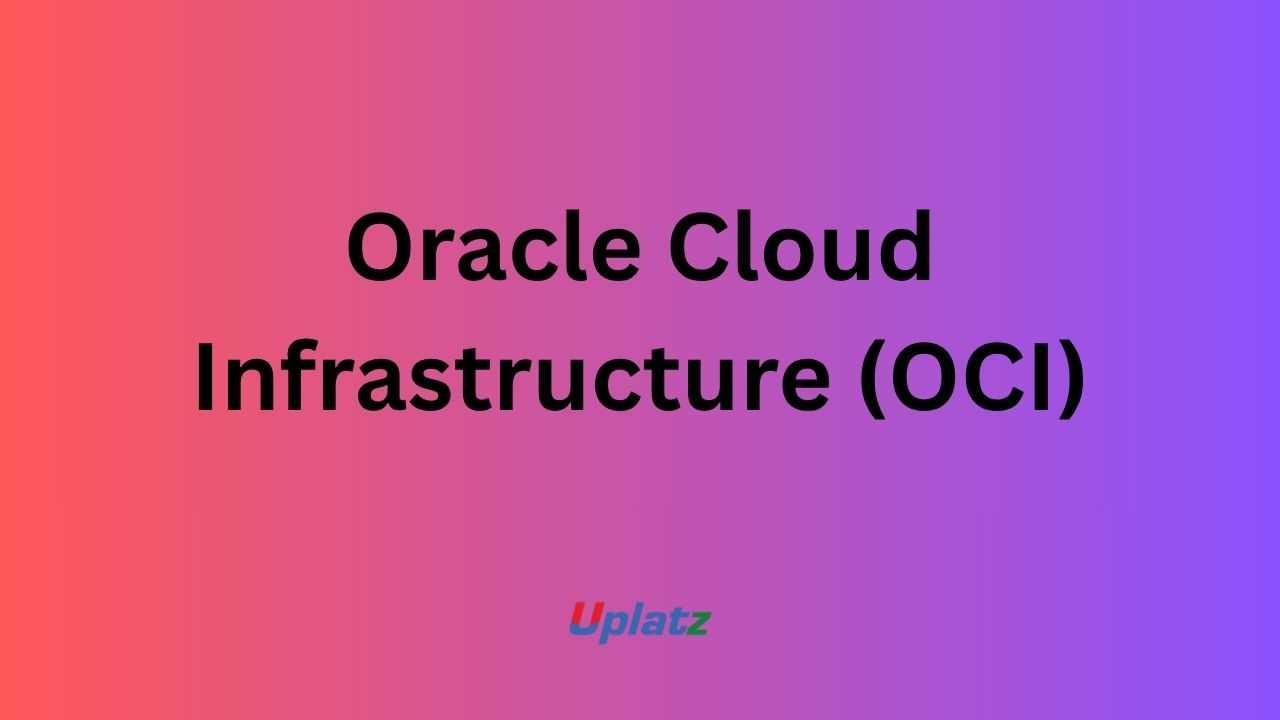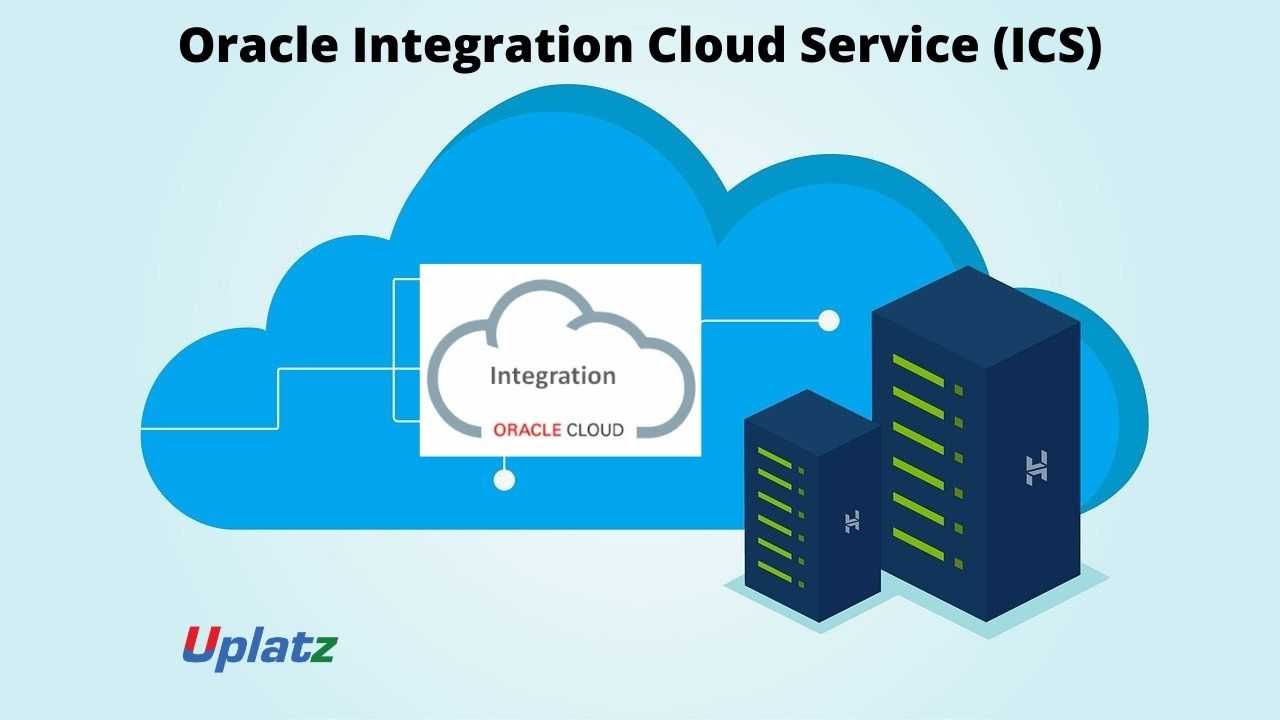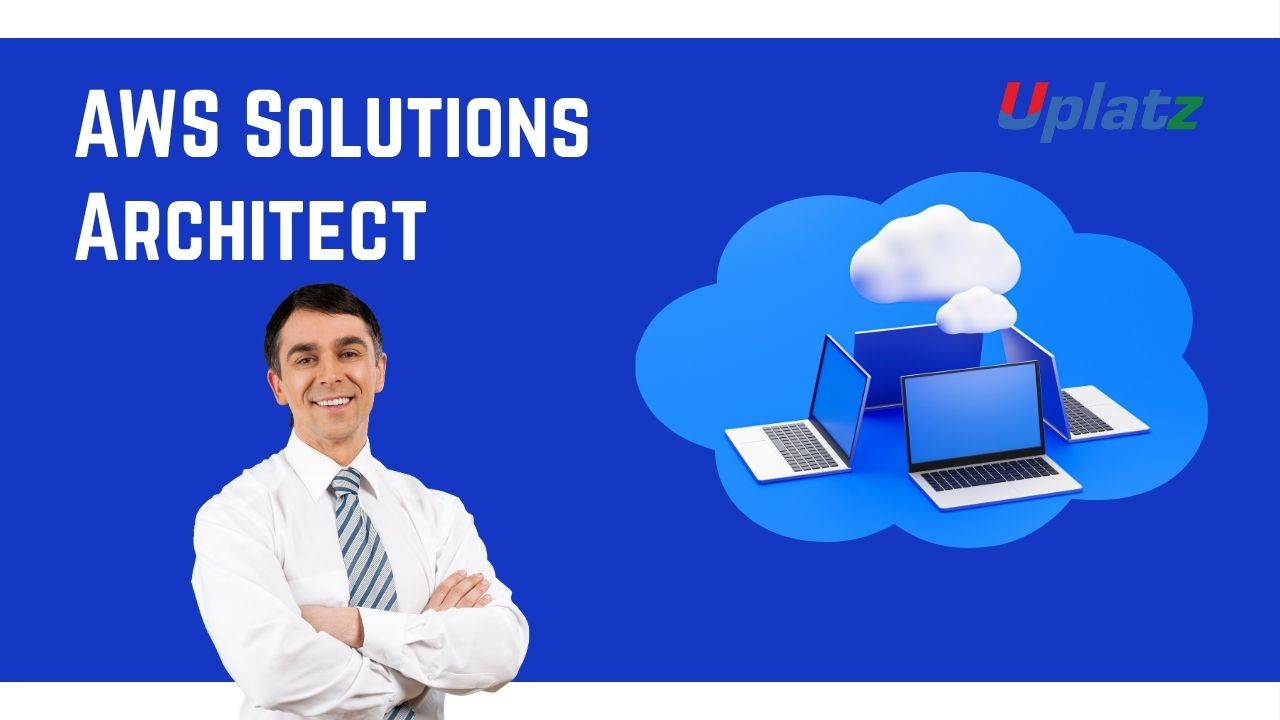Oracle Cloud Infrastructure (OCI)
Master the Complete Oracle Cloud Platform – Compute, Networking, Storage, Databases & Security Price Match Guarantee
Full Lifetime Access
Access on any Device
Technical Support
Secure Checkout
Course Completion Certificate
Price Match Guarantee
Full Lifetime Access
Access on any Device
Technical Support
Secure Checkout
Course Completion Certificate
 97% Started a new career
BUY THIS COURSE (
97% Started a new career
BUY THIS COURSE (GBP 12 GBP 29 )-
 83% Got a pay increase and promotion
83% Got a pay increase and promotion
Students also bought -
-

- Oracle APEX
- 5 Hours
- GBP 12
- 469 Learners
-

- Oracle ICS (Integration Cloud Service)
- 20 Hours
- GBP 12
- 58 Learners
-

- AWS Solutions Architect – Master Cloud Design, Security, and Scalability on AWS
- 10 Hours
- GBP 12
- 10 Learners

Oracle Cloud Infrastructure (OCI) is Oracle’s next-generation cloud platform engineered to meet the complex needs of modern enterprises. Designed for performance, security, scalability, and cost efficiency, OCI supports everything from mission-critical databases and ERP workloads to cutting-edge AI, analytics, and DevOps pipelines. It’s the foundation that powers digital transformation, enabling organizations to run both cloud-native and traditional applications in a secure, high-performance environment.
OCI delivers a complete suite of IaaS, PaaS, and SaaS capabilities, providing consistent performance across compute, storage, networking, and database layers. With a global network of low-latency data centers, it enables enterprises to achieve unmatched reliability, compliance, and cost optimization — all while maintaining deep visibility and control over resources.
The Oracle Cloud Infrastructure – Complete Hands-On Online Course by Uplatz takes you on an end-to-end learning journey through OCI’s architecture, services, and automation frameworks. Through real-world labs, guided tutorials, and industry case studies, you’ll learn to design, deploy, secure, and manage enterprise cloud solutions with confidence.
By the end of this course, you’ll have the skills to architect, automate, and optimize OCI environments — positioning yourself for top-tier cloud engineering, DevOps, or Oracle-certified roles.
🔍 What is Oracle Cloud Infrastructure (OCI)?
Oracle Cloud Infrastructure (OCI) is a next-generation Infrastructure as a Service (IaaS) platform that combines the performance of on-premises infrastructure with the flexibility and scalability of the cloud. It allows enterprises to build, migrate, and manage workloads securely — supporting both traditional enterprise systems and modern, container-based applications.
OCI’s unique architecture delivers isolated network virtualization, dedicated compute, and integrated governance, making it ideal for businesses that demand consistent performance, predictable costs, and enterprise-grade security.
Key Capabilities Include:
-
Compute Services: Create and manage virtual machines, bare-metal instances, and Kubernetes containers.
-
Storage Services: Utilize Block, Object, and File Storage for scalable, durable data management.
-
Networking: Build secure Virtual Cloud Networks (VCNs) with subnets, gateways, and load balancers.
-
Database Services: Deploy Autonomous Databases, Exadata Cloud Service, and Oracle Database Cloud.
-
Identity & Access Management (IAM): Secure workloads with granular policies, roles, and compartments.
-
Security & Compliance: Apply encryption, auditing, and governance frameworks for full protection.
-
Monitoring & Automation: Use Cloud Guard, Logging, Monitoring, and Resource Manager (Terraform) for proactive management.
OCI provides a consistent hybrid and multi-cloud foundation that seamlessly integrates with AWS, Azure, and Google Cloud through Oracle Interconnect.
⚙️ How Oracle Cloud Infrastructure Works
Oracle Cloud Infrastructure operates on four core principles — Performance, Security, Scalability, and Cost Efficiency.
-
Performance: OCI’s high-bandwidth, low-latency backbone ensures faster compute, faster database transactions, and better application performance than legacy cloud systems.
-
Security: Multi-layered encryption, IAM, compartments, and network isolation safeguard workloads end-to-end.
-
Scalability: Auto-scaling, elasticity, and flexible pricing models support workloads of any size or complexity.
-
Reliability: Built-in disaster recovery, fault domains, and region-level replication ensure business continuity.
Oracle Cloud also includes a robust automation ecosystem powered by Terraform (Oracle Resource Manager), Cloud Guard, and Operations Insights, allowing you to deploy and monitor cloud environments at scale — with reduced operational overhead.
🏭 How OCI is Used in the Industry
Enterprises across industries leverage Oracle Cloud Infrastructure to modernize operations and accelerate innovation. OCI is particularly known for its ability to support data-intensive, high-performance, and mission-critical workloads across diverse sectors.
Common Use Cases:
-
Database Modernization: Running Oracle Databases, Autonomous Databases, and Data Warehouses in the cloud.
-
Hybrid Cloud Deployments: Using FastConnect to link on-premises infrastructure with OCI for secure data exchange.
-
Application Development & DevOps: Deploying scalable web apps and microservices with containers and Kubernetes.
-
Analytics & AI: Running large-scale analytics, big data pipelines, and machine learning workloads.
-
Disaster Recovery & Backup: Leveraging OCI’s global regions and high-availability zones for redundancy.
Global leaders like Zoom, 8x8, Mazda, FedEx, and CERN depend on OCI to reduce costs, enhance resilience, and deliver consistent performance across multi-cloud environments.
🌟 Benefits of Learning Oracle Cloud Infrastructure
Mastering OCI gives you a competitive edge in the rapidly evolving cloud ecosystem. Oracle’s growing market share and enterprise footprint make OCI skills extremely valuable for IT professionals, engineers, and consultants.
Key Benefits:
-
In-Demand Skillset: Oracle Cloud is among the fastest-growing enterprise platforms globally.
-
Comprehensive Cloud Knowledge: Learn compute, storage, networking, database, and IAM all within one environment.
-
Hybrid & Multi-Cloud Readiness: Gain expertise in cross-cloud integrations and Oracle-Azure interconnects.
-
Career Advancement: Prepare for certifications such as Oracle Certified Architect Associate, Operations Associate, and Foundations Associate.
-
Hands-On Experience: Apply practical skills through guided labs and real-world projects.
-
Enterprise Understanding: Learn how Oracle Cloud supports mission-critical, regulated workloads worldwide.
By completing this course, you’ll be equipped with both theoretical mastery and practical fluency in building robust, scalable cloud infrastructures.
📘 What You’ll Learn in This Course
This self-paced course provides a comprehensive, hands-on understanding of OCI’s services, configuration, and automation.
Core Learning Areas:
-
Overview of OCI architecture and global data center topology.
-
Compute: Creating, scaling, and managing compute instances and clusters.
-
Networking: Designing Virtual Cloud Networks (VCN), subnets, and routing policies.
-
Storage: Managing Object, Block, and File Storage for various data scenarios.
-
Database Services: Deploying and managing Autonomous Database and Exadata Cloud.
-
IAM: Configuring policies, compartments, and dynamic groups for secure access.
-
Load Balancing, DNS, and security configurations.
-
Automation: Deploying resources using Terraform, CLI, and Resource Manager.
-
Monitoring: Using Logging, Cloud Guard, and Monitoring Dashboards for observability.
-
Hybrid & Multi-Cloud: Integrating OCI with AWS, Azure, or on-prem systems.
-
Capstone Project: Designing a real-world, multi-tier cloud infrastructure on OCI.
Each module includes guided labs, quizzes, and assignments to help you master practical implementation.
🧠 How to Use This Course Effectively
-
Follow the Progression: Start with Compute, Networking, and Storage before moving to Databases and Automation.
-
Practice in OCI Free Tier: Create and test real deployments in your own sandbox environment.
-
Experiment with Configurations: Adjust IAM policies, scaling rules, and Terraform scripts.
-
Take Detailed Notes: Document setup steps and troubleshooting tips for quick recall.
-
Focus on Security Modules: Master OCI IAM, Encryption, and Cloud Guard — vital for certification exams.
-
Explore Multi-Cloud Labs: Understand hybrid architecture setups between OCI and other providers.
-
Complete the Capstone Project: Deploy a production-style environment showcasing your end-to-end cloud skills.
👩💻 Who Should Take This Course
This course is designed for a wide range of professionals looking to advance in cloud infrastructure, DevOps, or enterprise architecture:
-
Cloud Engineers & Administrators deploying Oracle workloads.
-
Database Administrators (DBAs) managing cloud-based Oracle databases.
-
System Architects & DevOps Professionals building hybrid and scalable systems.
-
IT Managers & Consultants planning cloud migrations.
-
Students & Graduates preparing for Oracle certifications and cloud careers.
-
Organizations adopting OCI for digital transformation initiatives.
No prior OCI experience is required — foundational concepts are covered step-by-step.
🧩 Course Format and Certification
This program is self-paced, flexible, and updated regularly to reflect Oracle’s latest releases.
Included in the Course:
-
HD video tutorials with live OCI demonstrations
-
Downloadable scripts, lab files, and cheat sheets
-
Practice projects and quizzes for self-assessment
-
Community forum and expert instructor support
-
Lifetime access with future updates
Upon completion, you’ll receive a Course Completion Certificate from Uplatz, validating your skills in Oracle Cloud Infrastructure and proving your readiness for professional roles and certification exams.
🚀 Why This Course Stands Out
-
Comprehensive Coverage: Covers fundamentals, advanced services, and automation tools.
-
Hands-On Approach: Includes guided labs and enterprise-grade capstone projects.
-
Certification Alignment: Structured according to Oracle’s official OCI learning paths.
-
Real-World Relevance: Teaches best practices for hybrid and multi-cloud operations.
-
Career-Focused: Builds directly applicable skills for high-demand cloud roles.
By mastering OCI, you’ll have the technical and strategic expertise to deploy, secure, and scale cloud infrastructures that power modern enterprises.
🌐 Final Takeaway
Cloud computing is redefining the digital enterprise — and Oracle Cloud Infrastructure (OCI) stands at the forefront of that transformation. Combining the performance of on-premises systems with the agility of the cloud, OCI empowers businesses to innovate faster, reduce costs, and operate securely at global scale.
The Oracle Cloud Infrastructure – Complete Hands-On Course by Uplatz equips you with the knowledge and experience to become a proficient Oracle Cloud professional. You’ll gain real-world skills to architect, automate, and manage enterprise cloud environments — unlocking career opportunities in one of the fastest-growing cloud ecosystems.
Start learning today and take the next step toward becoming a certified Oracle Cloud Infrastructure expert capable of driving innovation and digital transformation across industries.
By the end of this course, you will be able to:
-
Explain the architecture and components of Oracle Cloud Infrastructure.
-
Configure and manage compute instances and networking resources.
-
Create and manage Virtual Cloud Networks (VCNs) and subnets.
-
Use Object, Block, and File Storage effectively in OCI.
-
Deploy and administer Autonomous Databases.
-
Implement IAM, user roles, and security policies.
-
Monitor and audit cloud resources using Oracle Cloud Monitoring.
-
Automate cloud operations through scripting and API tools.
-
Integrate OCI with AWS and Azure for hybrid environments.
-
Prepare for Oracle’s OCI Foundations and Architect-Associate exams.
Course Syllabus
Module 1: Introduction to Oracle Cloud Infrastructure
Module 2: Regions, Availability Domains & Compartments
Module 3: Compute Services – Instances, Autoscaling, Load Balancers
Module 4: Networking – VCN, Subnets, Gateways, Route Tables
Module 5: Storage – Object, Block, Archive & File Storage
Module 6: Database Services – Autonomous DB, DB Systems, Exadata Cloud
Module 7: IAM & Security – Policies, Compartments, Encryption
Module 8: Monitoring, Logging & Automation
Module 9: Hybrid Cloud & Multi-Cloud Integration
Module 10: Capstone Project – Deploying a Multi-Tier Application on OCI
This Uplatz credential helps professionals stand out for roles such as Cloud Administrator, Oracle Cloud Architect, and Infrastructure Engineer. It also aligns with Oracle’s official certifications like OCI Foundations Associate (1Z0-1085-23) and OCI Architect Associate (1Z0-1072-23). The certificate signifies both theoretical understanding and hands-on competency — making you job-ready in the growing field of Oracle Cloud.
Cloud computing continues to dominate the global IT landscape, and Oracle Cloud Infrastructure is a key player in enterprise cloud transformation. With this course, you gain the expertise to work in roles such as:
-
Oracle Cloud Engineer
-
Cloud Architect (OCI)
-
DevOps Engineer
-
Systems Administrator (Cloud)
-
Cloud Security Analyst
Companies migrating from on-premises environments to Oracle Cloud are actively seeking professionals with OCI skills. Completing this course from Uplatz will prepare you for consulting roles, managed cloud services, or enterprise IT positions. Oracle specialists earn competitive salaries, typically ranging from $85,000 to $160,000 per year, depending on experience and specialization.
Your practical project portfolio from this course also positions you to pursue freelance opportunities and Oracle partnership projects in cloud migration, hybrid architecture, and infrastructure optimization.
-
-
What is Oracle Cloud Infrastructure (OCI)?
OCI is Oracle’s enterprise-grade cloud platform providing compute, storage, database, and networking services for scalable cloud solutions. -
What is a Compartment in OCI?
It’s a logical container for grouping resources, used for access control and resource organization. -
How does OCI differ from AWS or Azure?
OCI provides bare-metal performance, deep Oracle Database integration, and simplified enterprise-grade networking. -
What is a Virtual Cloud Network (VCN)?
A VCN is a customizable network in OCI that allows segmentation and control of traffic between resources. -
What types of Compute instances does OCI offer?
OCI supports Bare Metal, Virtual Machine, and Dedicated Host instances for different performance needs. -
What is the use of Object Storage?
It stores unstructured data like backups, images, and logs with high scalability and durability. -
How does IAM work in OCI?
IAM manages users, groups, and permissions through policies defining who can access what resources. -
What is an Autonomous Database?
A fully managed Oracle database that automates tuning, patching, and scaling. -
What are Availability Domains and Fault Domains?
They improve availability and fault tolerance by distributing resources across isolated infrastructure zones. -
How can OCI resources be managed?
Through the OCI Console, Command Line Interface (CLI), or SDKs for automation.
-









